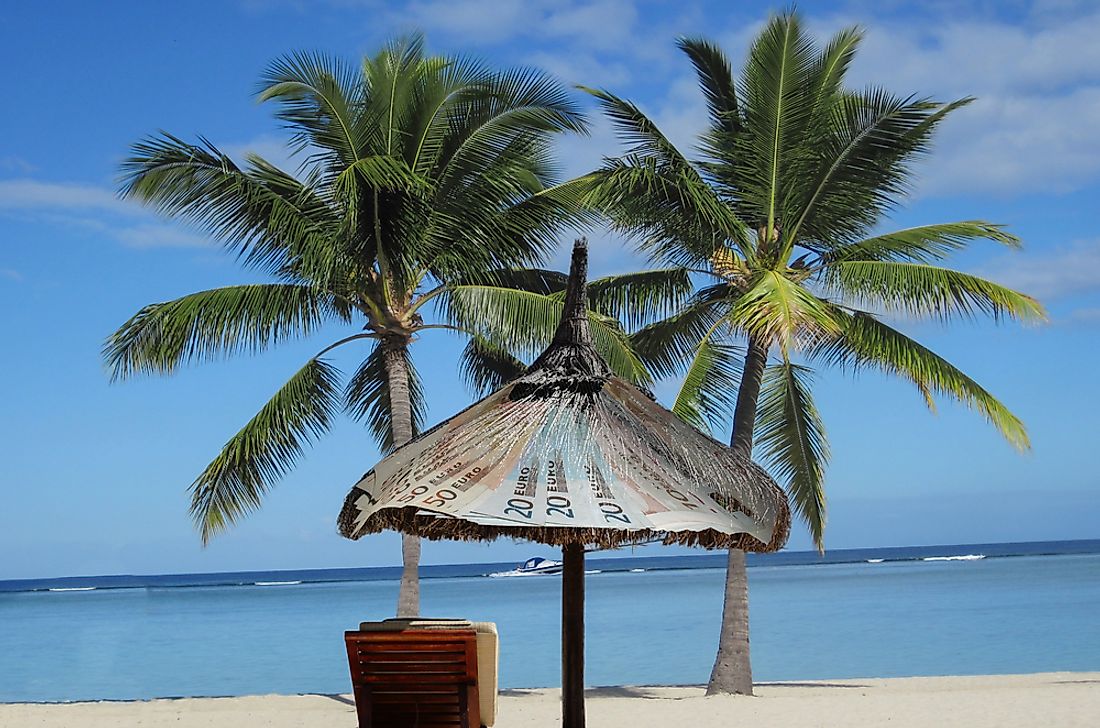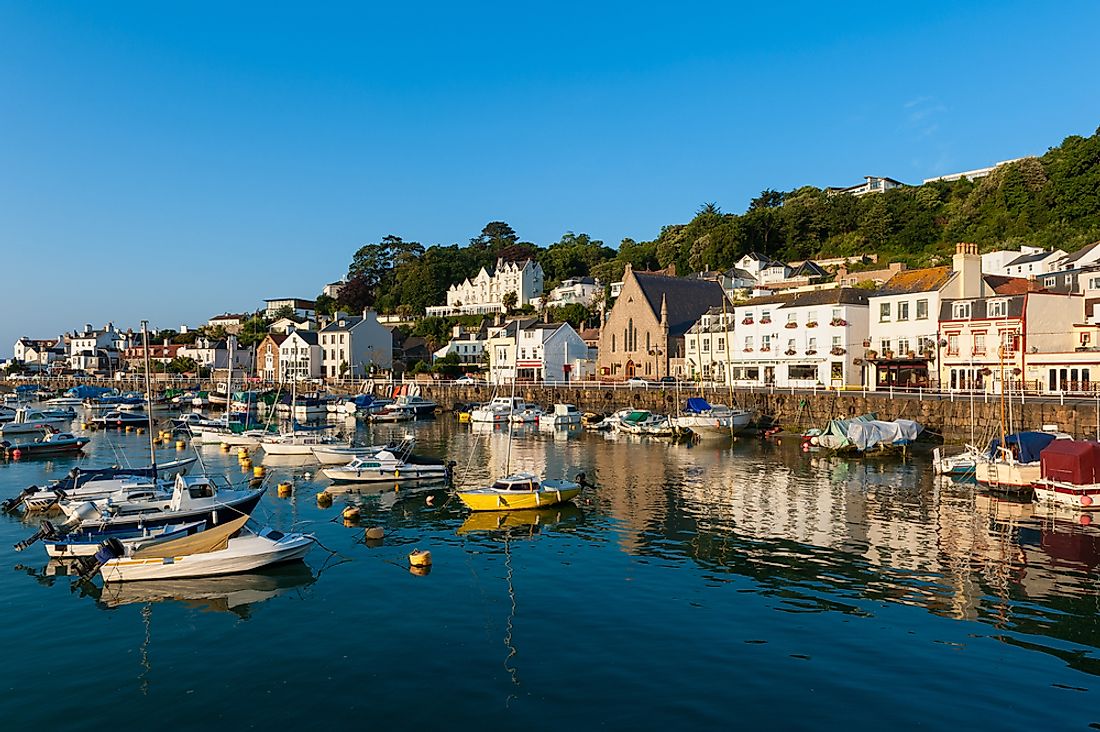The 10 Tax Havens Of The World

A tax haven is a jurisdiction, territory, or a state that provides extraordinarily low tax rates or no tax at all compared to other sovereign states. Tax havens are there for the benefit of multinational corporations, affluent individuals, corporate companies, and other elite financial institutions that need to hide away their money to evade taxation. Across the world, some countries offer the most favorable tax or other conditions to its taxpayers. The yearly Financial Secrecy Index is written by the Tax Justice Network (TJN) and features over 80 tax havens; this is based on their level of secrecy and offshore financial activities. In 2015, three countries were listed as the top ranked offenders; they were Switzerland, the USA, and Hong Kong. Tax havens mostly benefit the world's most elite class; wealthy people are the ones who are often in need of such services. Here are some of the countries that serve as tax havens.
10. Switzerland

Switzerland is ranked amongst the top countries that offer offshore banking which is one of the major sectors of its economy. Having top performing banking system makes Switzerland most popular among the tax havens in Europe. However, due to international pressure, it has slightly relaxed its laws on fiscal secrecy with the lobby in charge of enacting these regulations to remain enforced as evident through the aggressive policy against intimidation to disclose information in the sector. As opposed to several other European countries legal procedures, obtaining a Swiss company is a considerably quick process with a requirement by the Swiss law being that for one to be able to register a company there should be one Swiss company director or more.
9. Monaco

Wealthy individuals highly use Monaco as a tax haven for evading their country's taxes. This is because Monaco is a sovereign state and thus not obligated to pay taxes. Monaco does not levy income tax on some people under certain terms. The absence of personal income tax is mainly the reason that has influenced the high numbers of wealthy "tax refugee," especially those residing in the European states who mostly generate income out of Monaco. Good examples are Formula One drivers and other less popular business owners. However, for French citizens, they are obligated to pay wealth taxes and the applicable income to the French government even though they are residents in Monaco.
8. Bahamas

The Bahamas is among the countries listed as tax havens. The country has zero personal income tax rates, capital gains tax, wealth tax and other tax benefits both for the companies or individuals. Direct taxes are not levied therefore no double tax treaties are made with other countries. However, the Bahamas signed a tax information agreement with the United Kingdom, the US, Canada and other 29 states, with limited disclosure on criminal matters.
7. Bermuda

Bermuda is an offshore financial center with the minimal standards of business laws, regulations and direct taxation on personal or corporate income. With no corporate income tax, Bermuda has become a highly popular tax avoidance location, and Google moved over $10 billion in revenue into its Bermuda subsidiary using what is known as "Double Irish" and “Dutch Sandwich" tax evasion strategies.
6. Ireland

Despite Irish officials refuting claims of Ireland being a tax haven, it is often referred to as one. The US based Drug Company Pfizer recently merged with Allergan a company based in Ireland. The move is believed to be a tax inversion strategy where Pfizer dodged paying about $148 million in taxes.
5. Mauritius

Mauritius is famous among foreign investors with a high number of international corporations having established subsidiaries. In Mauritius, the levy on corporate tax is considerably low compared to other countries. Interest and capital gains in Mauritius are not taxed, and the residents are beneficiary to tax exemption due to double tax treaties. India is a large investor, although the amendment of the protocol on double taxation treaty between Mauritius and India was just signed in May 2016. The amendment was brought about due to the alienation of the Indian resident companies on shares which are bought by Mauritius residents.
4. Isle Of Man

Low taxes also characterize the Isle of Man. The region features relatively low-income tax with a maximum of 20% only. Low taxes and asset protection in the region attracts many companies who then structure their employee pension benefit plans. However, the only people that benefit from this include those that have employer-sponsored retirement accounts.
3. Jersey

Jersey Island is known to be among the leading offshore financial accounts, ranked 16th on the Financial Secrecy Index in the year 2015. Jersey rose to prominence as a tax haven in the mid 20th century. Jersey has no capital gains or inheritance tax.
2. Luxembourg

In April 2009, Luxembourg's reputation as a tax haven and its banking secrecy laws earned a spot on the "gray list" of states said to have questionable banking arrangements. In the light of this, Luxembourg adopted OECD standards and was listed as jurisdictions implementing the internationally agreed tax standards. However, the Sunday Telegraph reported claims of some $4 billion belonging to Kim Jong-Il being hidden in accounts there in March 2010. In April 2012, the Guardian reported that another of Luxembourg's tax loopholes beneficiaries included Amazon.co.uk. Luxembourg was ranked third in the world's top tax haven in 2011 and as the world’s 2nd safest tax haven in the world in 2013, according to the Tax Justice Network Financial Secrecy Index.
1. Cayman Islands

The Cayman Islands is ranked the 5th largest among banking centers and are also known for having international financial centers with hedge funds and investments. The country introduced the Mutual Funds Law in 1993, which has also been adopted by other countries. The Cayman Islands are the leading offshore hedge fund jurisdiction in the world. Cayman Islands in 2014 had banking assets worth $1.4 trillion, and was home to more than 11,000 mutual funds and other funds that was valued at $2.1 trillion. It also has more than 95,000 registered companies, more than 140 trust companies and host 200 banks. The financial services in the Cayman account for more than half of the GDP. Cayman has numerous secrecy feature and laws that could land one in jail for not just revealing confidential information, but just asking for it. In the mid to late 1990s, offshore financial centers were put under pressure by the OECD for what was termed as unlawful tax regimes. It was believed that the OECD was preventing low tax regimes from having the upper hand in the marketplace, hence threatened the Cayman Islands with sanctions and being blacklisted.











